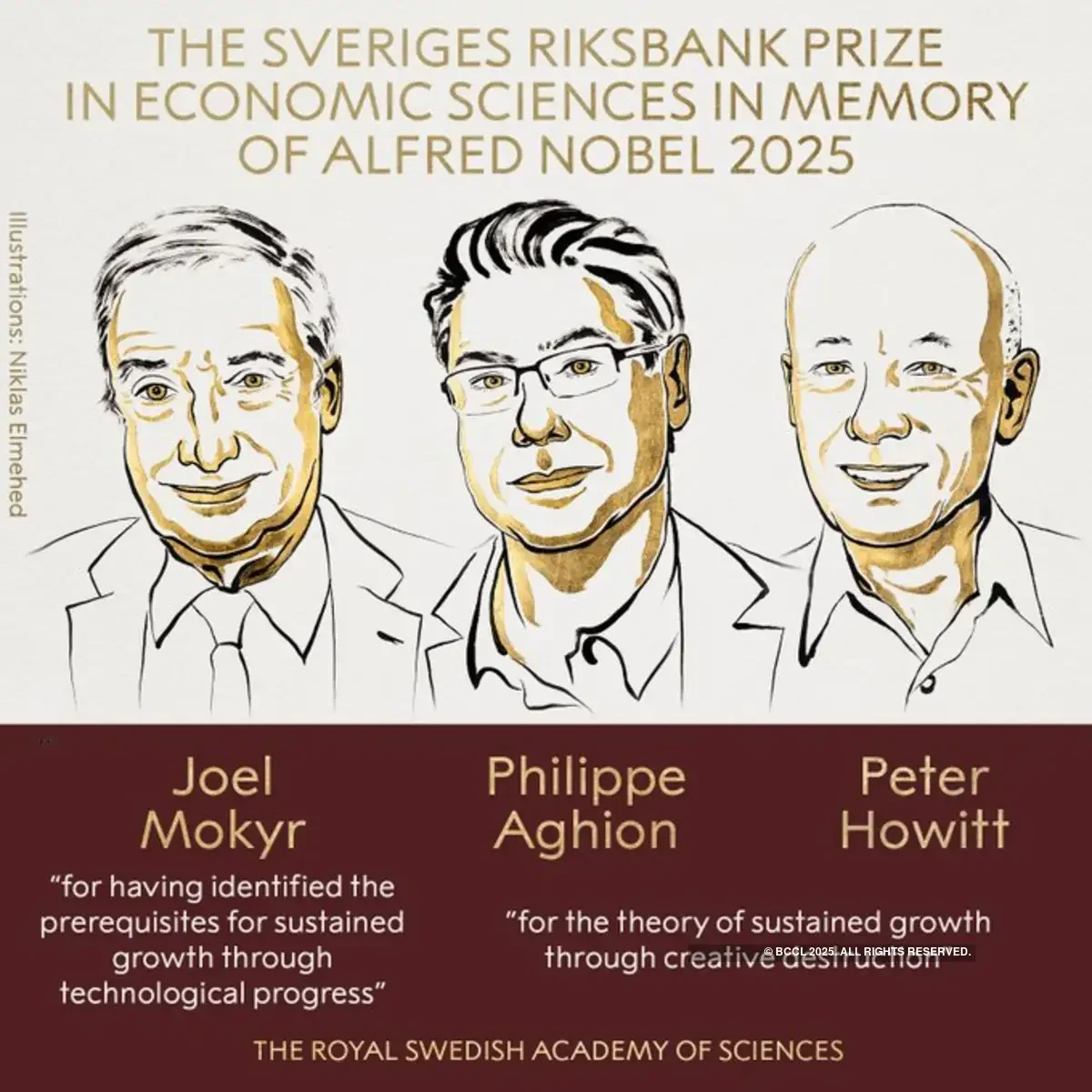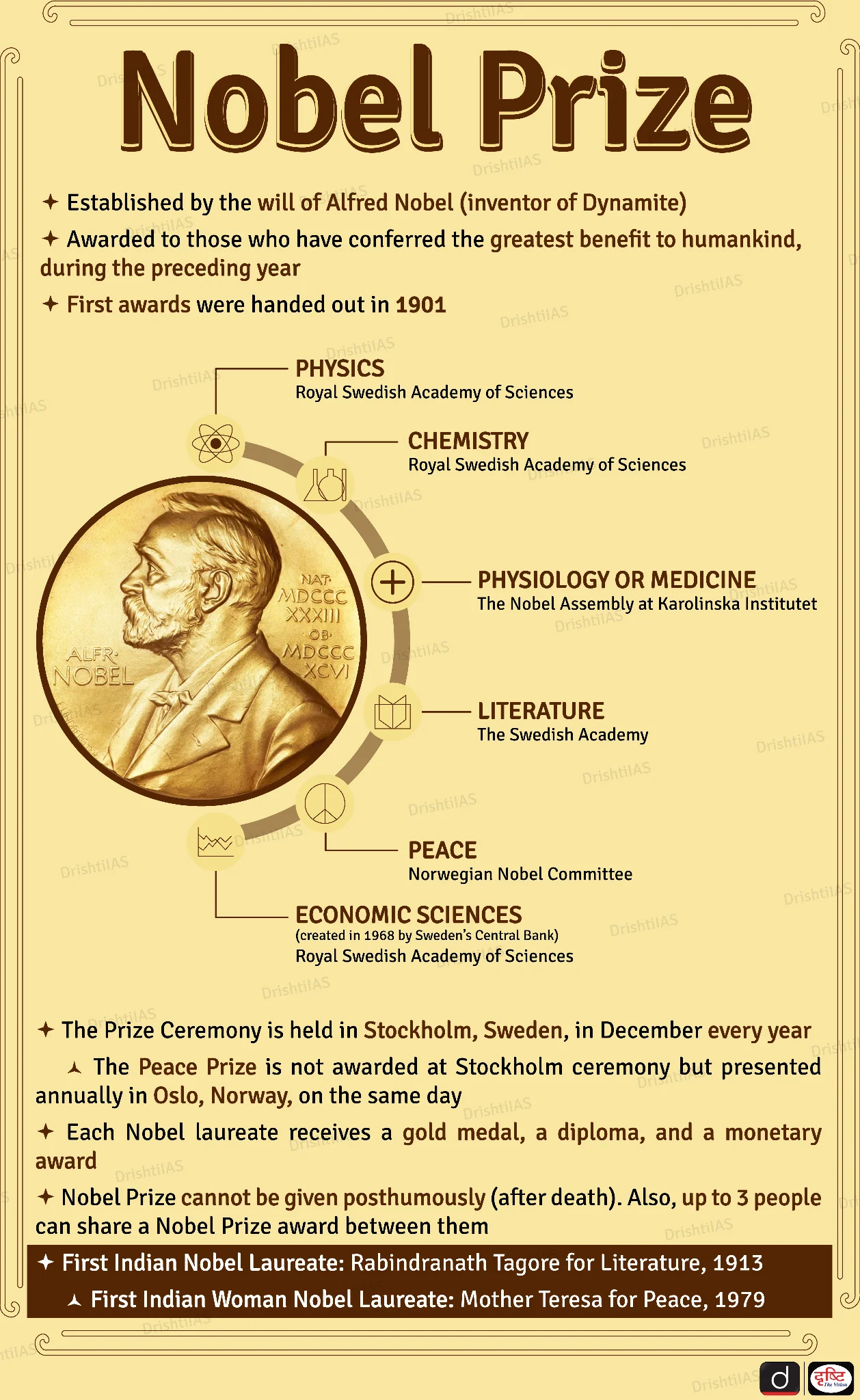Important Facts For Prelims
Nobel Prize in Economics 2025
- 15 Oct 2025
- 4 min read
Why in News?
The 2025 Nobel Prize in Economic Sciences was jointly awarded to Joel Mokyr (Netherlands), Philippe Aghion(Paris), and Peter Howitt(Canada) for explaining innovation-driven economic growth and how societies must counter stagnation to sustain development.
What are the Key Highlights of the Nobel Prize in Economics 2025?
- Laureates and Core Contribution:
- Joel Mokyr received one-half of the prize for identifying prerequisites for sustained growth through technological progress.
- Mokyr used historical data to reveal why sustained technological innovation is vital for continuous economic growth.
- Philippe Aghion and Peter Howitt shared the other half of the theory of sustained growth via creative destruction.
- Aghion and Howitt developed a mathematical model describing "creative destruction," where new products and technologies replace outdated ones, propelling economic expansion.
- Joel Mokyr received one-half of the prize for identifying prerequisites for sustained growth through technological progress.
- Significance of the Research:
- The work explains why the past two centuries experienced consistent global economic growth, improving living standards and well-being worldwide.
- It disrupts the assumption that economic growth is automatic, emphasizing the fragility of progress and the necessity to maintain innovation-driven mechanisms.
- Implications and Policy Insights:
- Their research highlights the importance for regions like Europe to integrate competition with proactive industrial policy, learning from examples like the US and China.
- The theory underscores the need for economies to encourage continuous innovation and adaptation for sustained prosperity.
Did you Know?
- Amartya Sen (1998): Awarded the Nobel Prize in Economic Sciences for his work on welfare economics, poverty, and human development, emphasizing that economic growth alone is insufficient, and development must focus on capabilities, rights, and freedoms.
- Abhijit Banerjee (2019): Shared the Nobel Prize in Economic Sciences with Esther Duflo and Michael Kremer for their pioneering work on experimental approaches to alleviating global poverty, introducing randomized controlled trials (RCTs) to evaluate social and economic interventions.
- Nobel Prize in Economic Sciences: In 1968, Sweden’s central bank, Sveriges Riksbank, established the Prize in Economic Sciences in Memory of Alfred Nobel on its 300th anniversary, funded through a donation to the Nobel Foundation.
- Awarded by the Royal Swedish Academy of Sciences, it follows the same principles as the original Nobel Prizes and carries equal monetary value.
|
Click here to Read: Nobel Peace Prize 2025 |
Frequently Asked Questions (FAQs)
1.Who were the recipients of the 2025 Nobel Prize in Economic Sciences ?
Joel Mokyr; Philippe Aghion & Peter Howitt.
2. What are the core contributions of the 2025 Nobel-winning research in economics?
Innovation-driven economic growth, explains the Scientific-Technical Synergy behind Sustained Growth and the theory of creative destruction.
3. How does the research provide policy insights for economic growth?
Highlights need for competition, industrial policy, and continuous innovation.








